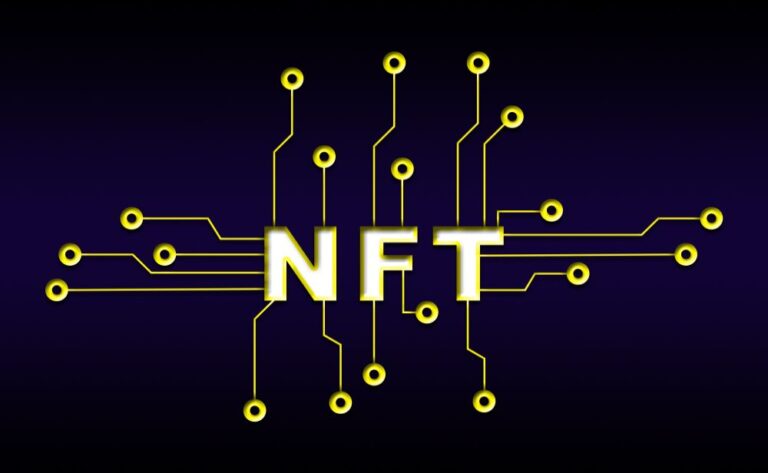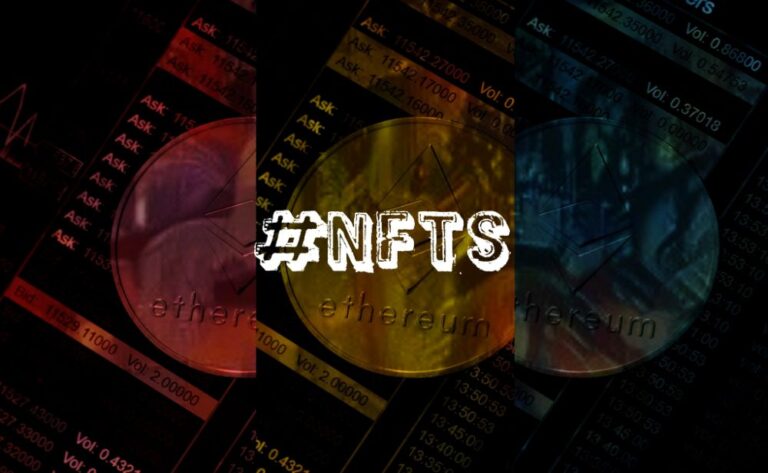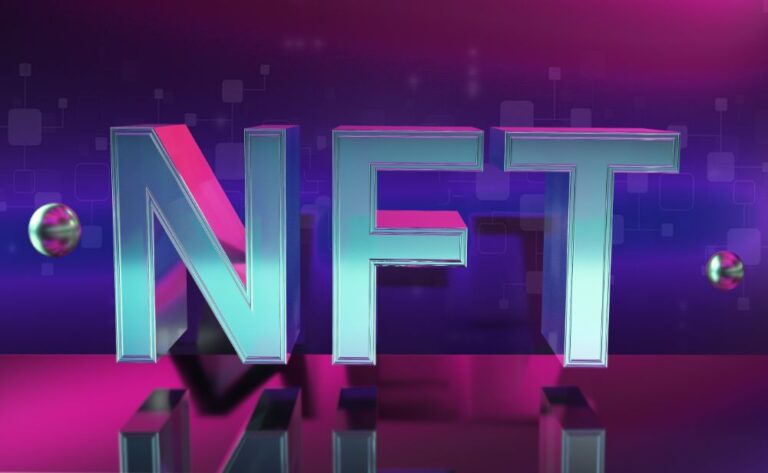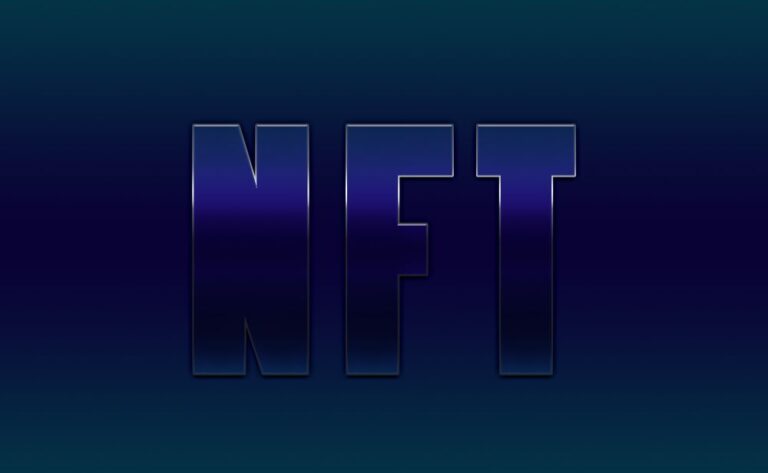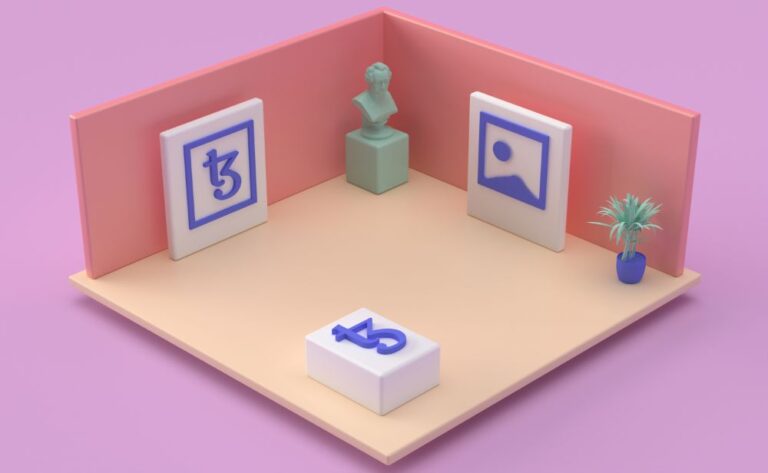
A decentralized platform for trading and holding Non-fungible tokens. It serves as a platform for users to buy and sell digital crypto art and other non-fungible objects at auction.
NFT Marketplace was first constructed on a separate chain, such as Ethereum, Tron, Binance Smart chain, etc., due to user demand. It was also recognized as a revenue system worth $1 million. It requires buyers and sellers to own cryptocurrency wallets in order to conduct transactions. The NFT marketplace provides robust ownership rights, immutability, and security for asset holders.
Following is a list of the top NFT marketplaces, along with descriptions, vital statistics, and links to their respective websites. This list includes both Open Source (Free) and Commercial (Paid) markets.
1) Gamma.io
Powered by Stacks, the Gamma NFT marketplace is an open marketplace for Bitcoin NFTs. It was introduced in 2021 under the name STXNFT since it employs the Stacks programming layer to settle NFT smart contract interactions on the Bitcoin network.
Gamma consists of three platforms: a secondary trade marketplace, a launchpad for primary mints and creative tooling, and a social platform that connects collectors and artists. On the Stacks programming layer, gas fees are often a few cents or less.
2) Binance
Binance NFT marketplace is a venue for the creation, purchase, and sale of NFTs (Non-fungible tokens). It was introduced in June of 2021.
Included in these NFT assets include music, digital things, videos, website domains, and physical objects. Users can also transfer NFTs between two blockchains.
3) Crypto.com
Crypto.com is a major NFT marketplace that provides consumers with a safe, secure, and trustworthy platform for buying, selling, and trading digital assets. Over 150,000 goods have been traded on the marketplace of Crypto.com. It supports formats such as PEG, JPG, PNG, GIF, WEBP, and MP4. Allows artists to receive royalties on subsequent purchases.
4) FTX.com
FTX.com facilitates the sale and acquisition of NFTs. It also permits the redemption of NFT for a product or service. It facilitates trading between Ethereum and Solana across chains.
5) OpenSea
OpenSea is one of the most well-known NFT art and collectibles markets. This NFT platform contains unusual forms of art, such as virtual land and pets. OpenSea also permits the purchase of NFTs using many virtual currencies, including ETH and DAI.
6) Cool Gateway
Nifty Gateway is an NFT marketplace that uses drops to distribute collections from leading artists. These collections are only available for a limited time.
On this NFT page, you may observe the countdown that indicates when the subsequent drop will occur. Artists have the ability to determine the royalty rate for secondary sales. This NFT platform charges a 20% transaction fee plus 30 cents for every secondary sale.
7) Unique
Rarible is a community-owned NFT marketplace whose “owners” hold the RARI ERC-20 token. Rarible awards active users of the network with RARI tokens to buy or sell on the NFT marketplace.
8) Groundwork
Foundation is an organization that brings together artists, curators, and collectors. This NFT platform allows content authors to access the list of Ethereum investors’ current bids. Additionally, this NFT marketplace has a list of Featured Artworks.
All auctions on this NFT online platform are equipped with an automatic timer. Additionally, artists can view the work of popular creators. They will receive information regarding their joining period, number of creations, number of followers, links to their social network profiles, website URL, etc. On this site, you can only make payments using Ethereum.
9) SuperRare
SuperRare is an NFT website that focuses primarily on becoming a marketplace for the purchase and sale of one-of-a-kind and limited-edition digital artworks. Each artwork in the network is truly created by an artist and tokenized as a cryptocollectible digital asset.
10) Solanart
Solanart is an NFT website that enables you to peruse the collection and purchase the NFT you desire. It also facilitates the sale of NFTs of collections listed on Solanart. Every transaction on this NFT platform incurs a 3% marketplace fee on the selling price.
11) Decentraland
Decentraland is a fully decentralized virtual environment in which users can produce and sell their own goods.
This NFT market provides a variety of digital assets, such as wearables, estates, names, etc. In Decentraland, you may purchase and sell virtual lands, customize your properties, and save them in an Ethereum-based smart contract.
12) NBA’s Best Shot
NBA Top Shot, a marketplace owned by the NBA and started in 2020, is immensely popular. It enables you to get digital collectibles of their NBA highlights that you may purchase. This NFT marketplace also offers a certification that confers authenticity and ownership rights on the purchaser of the unique moment.
13) Makersplace
Makersplace is a 2019-founded NFT website that facilitates the discovery and collection of unique digital creations. Makersplace empowers digital producers such as artists, photographers, and authors, among others. This NFT marketplace is available to everyone. It also provides a solution that simplifies blockchain technology for the benefit of all authors.
14) RecognizedOrigin
KnownOrigin is an online NFT marketplace where unusual digital crypto artworks can be discovered and purchased. On this NFT platform, artists can display, promote, and sell any digital artwork directly to genuine collectors.
15) Perishable
Mintable is a non-fungible token (NFT) marketplace situated in Singapore where you can search, buy, and sell NFTs. This NFT marketplace provides a variety of NFT categories, including art, game items, collectibles, and music. This NFT website also lists the most popular NFTs on its homepage.
16) BakerySwap
BakerySwap is a decentralized marketplace and exchange on the Binance Smart Chain (BSC). It employs an internal BakerySwap token (BAKE). This NFT Marketplace is a multifunctional cryptocurrency marketplace that provides a variety of decentralized finance (DeFi) services, a crypto launchpad, and non-fungible tokens. You can also utilize NFTs to get bonus BAKE tokens with ‘Combo Meals’.
17) Async Art
Async is a marketplace for non-fungible token artwork that was established in February 2020. In addition to purchasing and selling NFTs, this NFT platform permits the creation of one’s own NFT tokens. This NFT platform also allows artists to quickly specify the appearance and behavior of their work.
18) Enjin
Enjin is an NFT marketplace where rare digital artworks and branded crypto-collectibles can be purchased and sold. You can also use the Enjin wallet to list and buy collectibles and gaming products.
19) Aavegotchi
In 2020, Aavegotchi will debut as an online NFT marketplace. This platform utilizes a novel combination of NFTs and decentralized finance (DeFi). It permits better yields and long-term profitability from NFTs. Using DeFi principles like as dynamic rarity, rarity farming, smart contracts, and collateral stakes, this NFT marketplace is able to radically alter the blockchain gaming industry.
Link: https://aavegotchi.com/
How can I Gain Access to an NFT Market?
Following are the steps required to access and utilize an NFT marketplace:
1) Create an account on the NFT Marketplace where you wish to buy or sell NFTs.
Determine if the coins you wish to use are accepted on the marketplace.
Step 3: Acquire a compatible digital wallet. You must ensure that your cryptocurrency wallet is compatible with the blockchain network that supports the NFTs you wish to purchase or sell.
4) Insert coins into the wallet. To purchase, list, or sell NFTs, you must fund your crypto wallet beforehand.
How do I sell products on the NFT Marketplace?
Whether you are selling an NFT you produced or one from your collection, the procedure is basic and identical.
The following actions are required to sell on the Binance NFT marketplace:
First, you must make a few simple options, such as the type and duration of the sale. The Binance team will review your submission before listing it on the Binance NFT Marketplace following its submission.
Step 1) Visit the Binance NFT Market
Log in to your account on the Binance NFT Marketplace.
Step 2) Establish an NFT
Place your NFT and commence the minting procedure.
After some time, the [Minting Completed] screen will appear.
Step 3: Record your NFT
To access the listing options, click the “List NFT” button.
Step 4) Compile a list of existing NFTs
Visit the [NFT Asset] page if you wish to list an existing NFT you already own.
Click the collection section and then select the NFT you wish to list.
Check the NFT’s description at Step 5.
Navigate to the [Description] page of the NFT, which, if available, displays a description of your NFT. To access listing choices for your NFT sale, select the “List NFT” option.
Step 6: Choose either Highest Bid or Set Price as the selling method.
The [Highest Bid] option will auction off your NFT, while the [Set Price] option will allow you to sell the NFT at a fixed price immediately. We have demonstrated how to accomplish this with the Highest Bid option.
Step 7: Determine the Minimum Bid
Set the minimum bid for the auction. This is the price at which you can begin bidding. You can select Bitcoin, Ethereum, Litecoin, or any other cryptocurrency as a payment option on the right.
If you wish to conduct a Set Price sale, click the [Set Price] button to modify the available sale options. Rather than establishing a minimum bid, you can directly select the price that the buyer will pay for your NFT.
Step 8: Set the date and hour of the auction.
This stage requires you to enter the end date and time for the Auction or Fixed Price sale. It cannot exceed seven days from the time of listing. Configure the time and date, then click “Submit.”
Select the NFT category and supply a description
Select an appropriate category for your NFT, write a description, and then click “Submit.” The correct categorization of your NFT will make it easier for buyers to locate your NFT.
FAQ:
What exactly is an NFT Market?
A decentralized network that allows users to exchange and store non-fungible tokens is known as an NFT Marketplace. It serves as a platform for auctioning digital collectibles, arts, music, and gaming goods that users can purchase and sell.
What are the top markets for buying and selling NFTs?
The following are the top markets for buying and selling NFTs:
• Gamma.io
• Binance
• Crypto.com
• FTX.com
• OpenSea
• Elegant Gateway
• Rarible
• Foundation
• SuperRare
• Solanart
What are the Characteristics of Non-Financial Transactions?
Non-fungible tokens are incredibly strong tokens that enable for the representation of non-fungible assets on a blockchain via a variety of approaches. Important NFT properties include:
• Unique: NFT tokens contain code information describing the attribute of each Token, making them distinct from other tokens. It is a digital artwork that may contain encoded information about pixels. Tokenized in-game items, for instance, hold information such as which player owns which item and other properties.
• Traceable: All NFTs have a record of transactions in the blockchain from the time they were created, including every time they changed hands, making them verifiably genuine. This is vital information for token owners and potential buyers.
To make non-fungible tokens appealing to purchasers, they should be scarce and difficult to obtain. This increases the long-term desirability of the assets.
• Non-divisible: Non-fiat currencies cannot be exchanged in fractional amounts. Similarly, you cannot purchase a concert ticket or trading card in halves. Furthermore, non-fungible tokens cannot be divided into smaller denominations.
• Programmability: Like all conventional digital assets and tokens based on smart contract blockchains, NFTs may be programmed.
Why are NFTs so Common?
Here are some of the key reasons for the NFTs’ popularity:
• They are Transferable: Unlike exchange-traded cryptocurrencies, non-fiat tokens can be purchased or sold on specialized platforms. However, their worth is contingent upon their originality.
• They are Authentic: The Blockchain technology that powers non-fungible tokens makes NFTs authentic. With a decentralized and unchangeable ledger, it becomes nearly difficult to produce counterfeits.
• Preserve Ownership Rights: Non-fiat currencies employ decentralized platforms where data cannot be altered after it has been programmed.
>> View our list of the best NFTs to purchase
Where are Creators able to sell NFTs?
There are numerous NFT marketplaces where NFTs can be sold. Binance, OpenSea, Async Art, Foundation, Rarible, and Nifty Gateway, among others. These NFT sites demand buyers to have a digital wallet and pay for their purchases with cryptocurrencies.
How to Select the Leading Non-Fungible Token Market?
Choosing a market for your NFT relies on the type of NFT you wish to purchase or sell. For instance, if you are interested in basketball NFTs, you should visit NBA Top Shot as they specialize in such NFTs.
Second, you need have a digital wallet and cryptocurrencies for the transaction that are exclusive to the non-fungible token marketplace.
Where Can I Collect Rare Digital Art?
There are numerous platforms where art NFTs can be purchased. OpenSea, Rarible, Foundation, Nifty Gateway, etc. are the most prominent NFT marketplaces for rare digital art. Also, Dapper Labs is one of the greatest gaming NFT marketplaces, and there are specialist NFT sites for athletic NFTs, such as NBA Top Shot, where you can create, purchase, and sell NFTs regarding NBA players, teams, countries, etc.
What are the two most important NFT standards?
Here are the two most crucial NFT specifications:
ERC-721: The ERC-721 token standard was first suggested in 2017 and is written in Solidity (a programming language) on the Ethereum network. It is the most stringent standard, enabling the creation of non-fungible tokens for digital collectibles.
ERC-1155: ERC-1155 is an enhanced token standard that permits smart contracts to support both fungible and non-fungible tokens. This NFT token standard enables IDs to represent numerous asset types.
